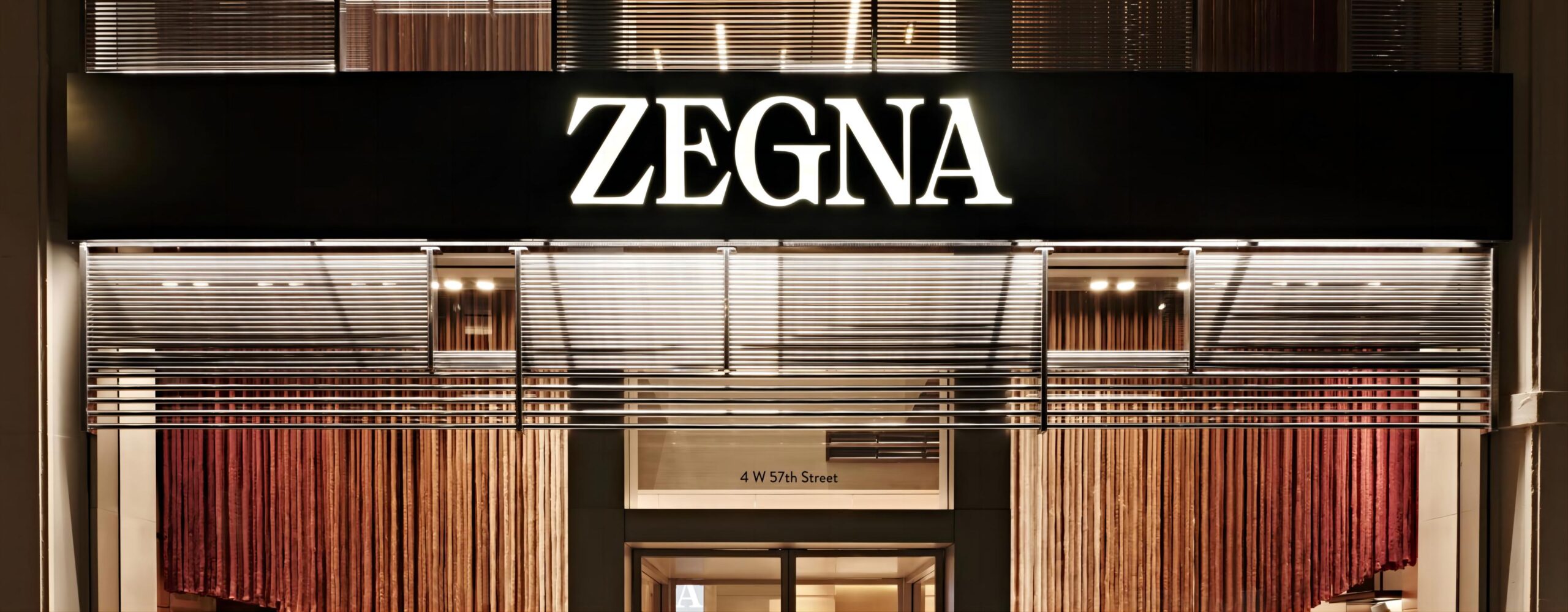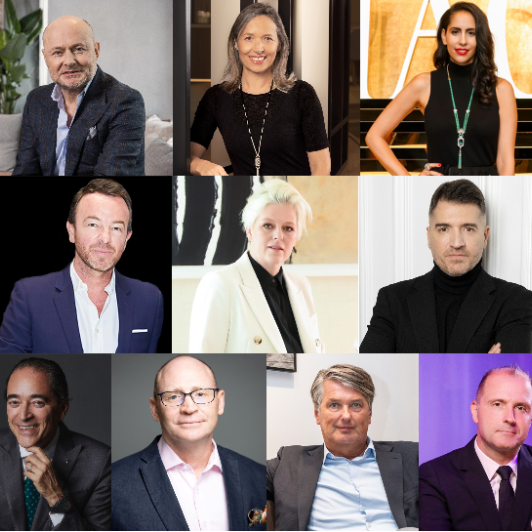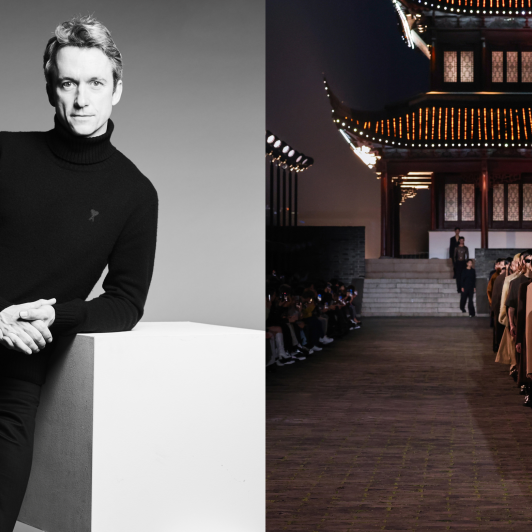Recently, LuxePlace conducted an exclusive interview with Stefano Canali, the CEO of the Italian luxury men’s wear brand CANALI.
Stefano Canali is the third-generation heir of the Canali family. He worked in the finance industry for many years and joined the CANALI brand in 1998, becoming the CEO of the brand since 2018.
During the interview, Canali introduced the brand’s latest sustainable project, the CAre Project, and shared his insights on the men’s fashion industry, the Chinese market, and the brand’s future plans.
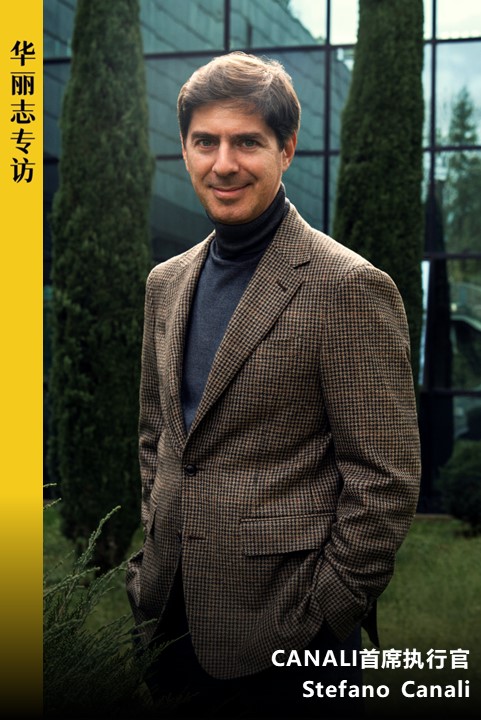
China Market: Being a Brand is Not Enough Anymore
CANALI entered the Chinese market in the 1990s. In 2020, the brand regained control of 10 stores from its Chinese franchise partners, strengthening its management in the Chinese market and demonstrating its long-term commitment to the region.
CANALI has nearly 40 stores in mainland China. In 2021 and 2022, CANALI opened flagship stores on Tmall and JD.com platforms, respectively. Last October, CANALI’s Shanghai IFC store reopened with a new image, showcasing the brand’s comprehensive upgraded Me by CANALI tailoring service in cities like Beijing, Shanghai, and Changsha.
LuxePlace: Did this visit to China give you more confidence in investing in the Chinese market?
Stefano Canali: We are absolutely more confident that China is becoming increasingly important for us. The strategic plan we developed during the pandemic in 2020 has been validated, and it’s evident that we need to further accelerate our efforts. The evolution of Canali in your country in the upcoming years will undoubtedly be very interesting.
LuxePlace: What trends have you observed among Chinese male consumers?
Stefano Canali: Chinese consumers are evolving quite swiftly. On average, the Chinese consumer is younger than the average consumer worldwide, thanks to the country’s younger population. On average, the younger consumer is much more into fashion goods than consumers outside China.
Chinese consumers were mostly interested in sportswear pieces of garments many years ago. Then they have changed, increasing their interest in whatever is not sportswear and casual wear. They’re becoming and have become more demanding. So they know what quality is all about. They are attracted by brands, but the brand is not enough anymore. They tend to buy for themselves rather than to buy to make themselves happy. Happiness comes from the brand they’re wearing but also comes from the quality of the stuff they’re wearing and the way they look while wearing that stuff.
They are learning a lot thanks to the fact that they do travel more and more. Now moving back to normalcy, they’re able to restart traveling, and they are becoming very knowledgeable about brands because they are getting informed quite well. So they visit websites, they inquire about brands, they read newspapers and magazines, and they like to talk about brands. So they’re very well-informed.
Service-wise, they’re very interested in having high-quality service, and that’s the reason why we’re increasing the services in the most important stores we have in China. And they do make comparisons among brands. But still, they’re evolving because it’s in the nature of the consumer to evolve according to the evolution of their needs.
So it is of apparent importance for any brand to keep an eye on the specific needs of any single nationality we address.
LuxePlace: How would you describe the evolution of men’s fashion now?
Stefano Canali: Actually, as far as the product offerings are concerned, the products were proposed everywhere in the world, and in China, it has evolved a lot. As a matter of fact, formal wear these days is something that keeps the shape of a jacket, but the materials you use, the construction you apply, and the results you get are very different compared to the old idea of a piece of formal wear.
There is no distinction between the formalwear proposal and the casual proposal anymore. Because over the past years, the two collections have exchanged materials, constructions, and details. So they ended up being just one proposal moving from the shape of a jacket to the shape of a piece of sports of artwear.
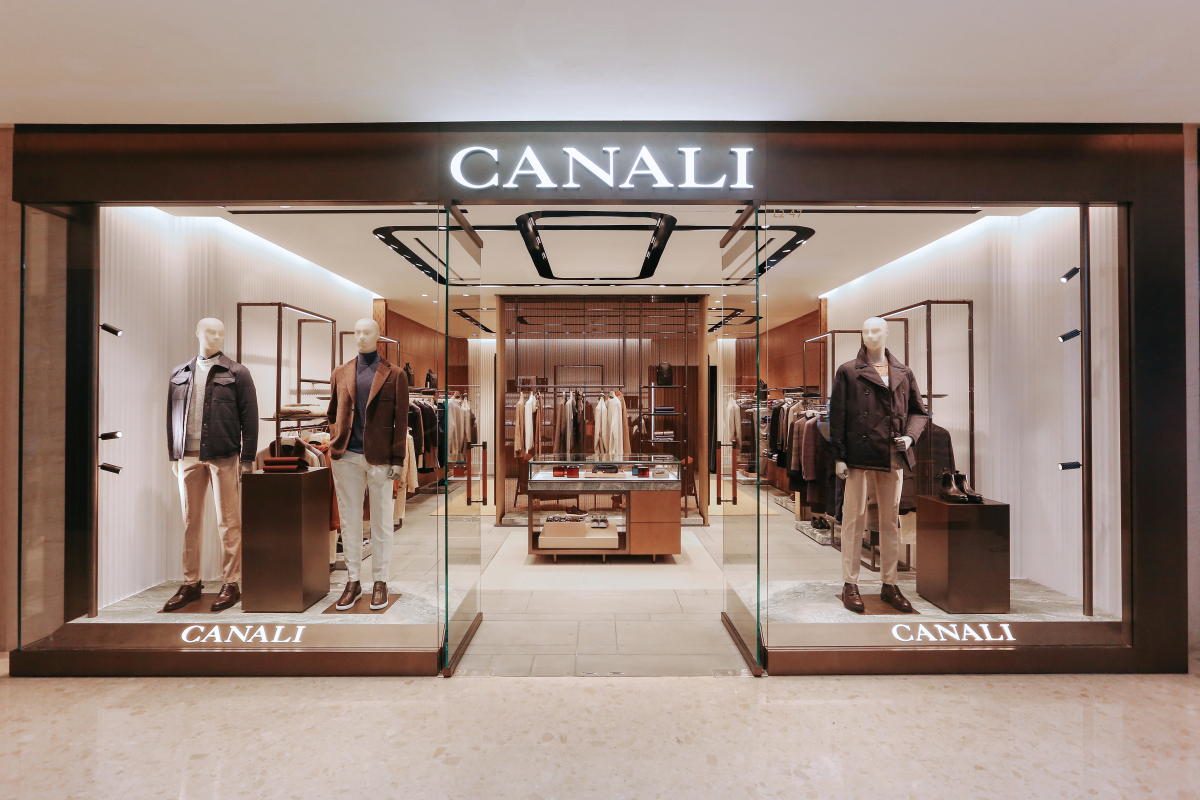

The renovated CANALI store at Shanghai International Finance Center (IFC)
The CANALI Interpretation of “Made in Italy”
In 1908, Giacomo Canali opened a men’s tailoring shop in Brianza, northern Italy. In 1934, he and his brother Giovanni Canali founded the CANALI company. In the 1950s, CANALI took advantage of the development of Italian fashion and expanded globally in the 1970s. By the 1980s, 50% of the brand’s products were sold internationally.
CANALI upholds the values of tailoring tradition, exquisite craftsmanship, and attention to detail, which have been passed down for three generations in the brand’s family.
Today, CANALI’s products are still entirely manufactured in five of its own factories located in Italy. The cutting and preparation of the clothes are all done by craftsmen, and the making of a CANALI jacket requires over 200 steps. Some products even require six months of craftsmanship training for the artisans.
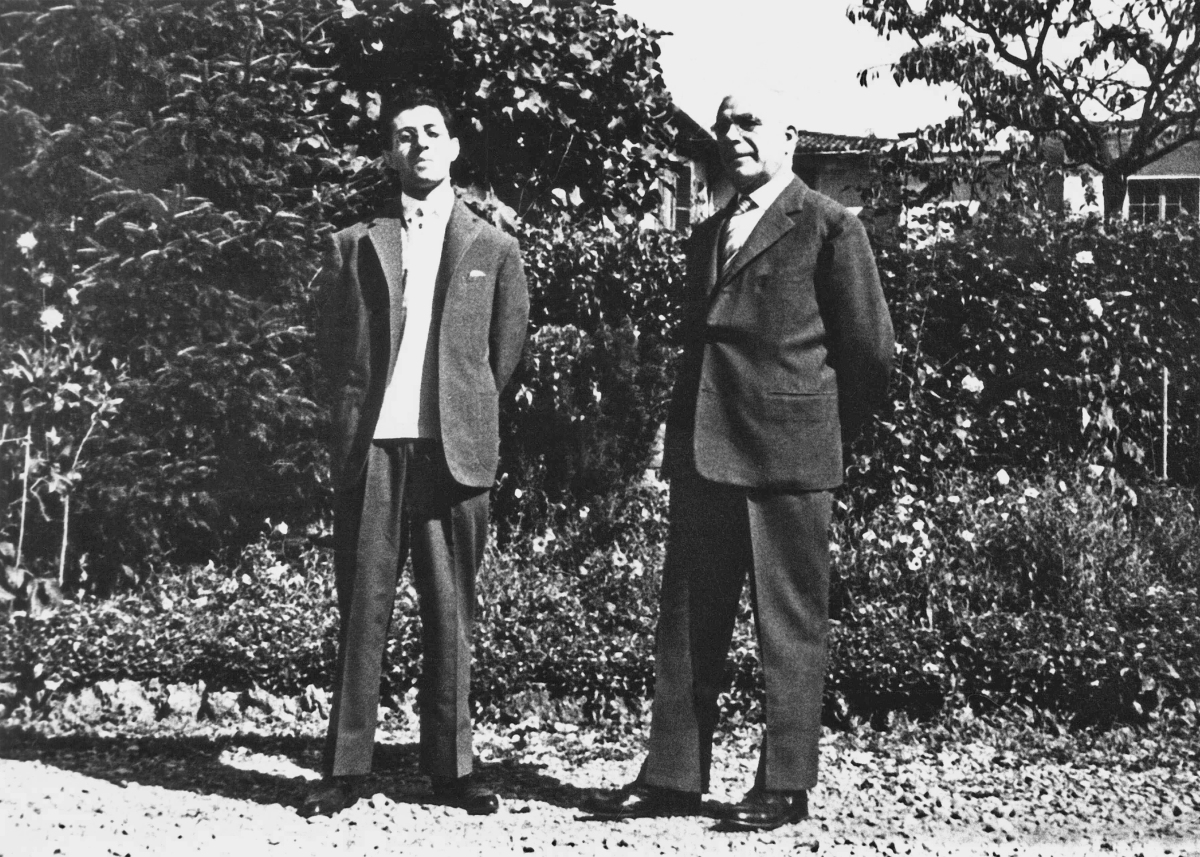
Giacomo Canali and Giovanni Canali
%E5%88%9B%E7%AB%8B%E7%AC%AC%E4%B8%80%E5%AE%B6%E7%94%B7%E8%A3%85%E8%A3%81%E7%BC%9D%E5%BA%97.jpg?x-oss-process=image/resize,m_fill,w_1200,h_765)
The first men’s tailoring store opened by Giacomo Canali and Giovanni Canali
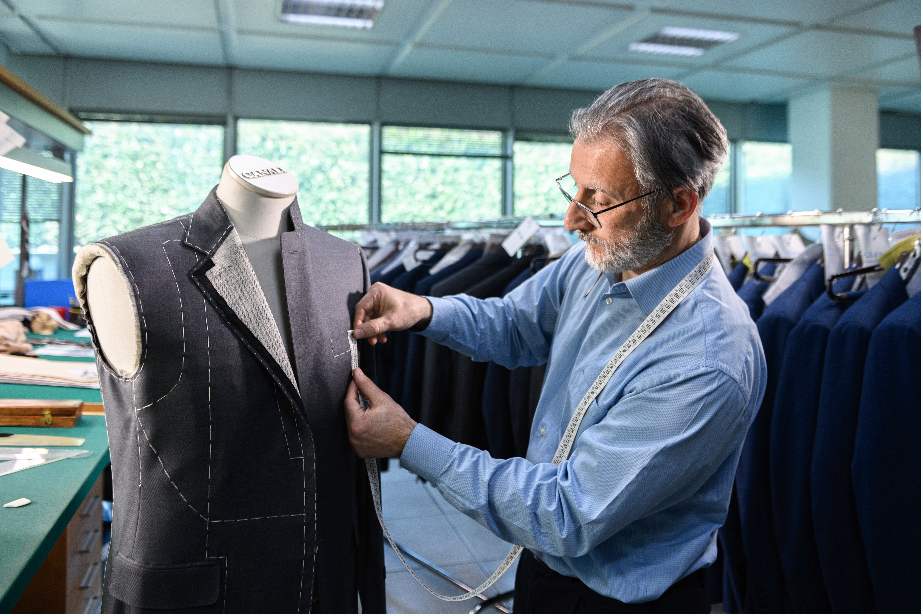
In 2022, CANALI launched the brand new upgraded Me by CANALI bespoke service, representing “Italian craftsmanship.”
LuxePlace: What key aspects of the brand do you want to convey to Chinese consumers?
Stefano Canali: Our products are an expression of Italian style, Italian heritage, and Italian history. Wherever you go in Italy, you are surrounded by the country’s history. This tells us that anything made in Italy, whether in clothing design or production, represents the history and heritage of the entire country.
If we go beyond the style and the colors or the details associated with it itself, there is a hidden secret behind the construction of our products. These hidden secrets are the way we manufacture the products, which is in the hands of our artisans. They learn their skills from their predecessors and can create high-quality menswear. These garments are made using traditional craftsmanship, which requires the artisans to possess both exceptional skills and the ability to put their knowledge into practice.
So the good taste, the quality coming from the Italian heritage, and the ability to craft a high-quality product. If you put these features together, you end up having something unique that is very much about the Made in Italy concept that Italian brands have been renowned for worldwide for many decades now.
LuxePlace: Has the connotation of Made in Italy evolved in any way?
Stefano Canali: It’s very interesting to highlight the fact that the Made in Italy concept itself is evolving. Made in Italy used to be associated with high-quality, luxurious, and stylish garments. But according to the results of our OEF and PEF methodologies and measurements, Made in Italy is now evolving toward a concept of sustainability. Sustainability concerns both the planet and the people, which I mentioned to you earlier.
As we have always done since the company was established, we manufacture whatever we sell in Italy with a very short supply chain. At the end of the day, we have Italian artisans working for us, and they enjoy full production benefits in terms of health, social security, and legal issues.
It’s a sort of holistic approach to extend that by proposing something that is Made in Italy.
LuxePlace: How does CANALI adapt to changes in the market and consumer demands?
Stefano Canali: CANALI has always been evolving but will never change completely. In the past 90 years, we have been meticulously producing formal wear, and our identity as a formal wear brand has been recognized, becoming the DNA of our brand.
What we have done in the past few years is to continue developing based on the DNA of the brand. For instance, if we consider the evolution of our shoe collection, we do propose what we might call formal wear and tailoring shoes. But at the same time, we do propose loafers and shoes made out of swedes, leather with sportswear soles, and so forth. So there are no boundaries anymore. It’s just one collection representing still and, most importantly, Canali’s DNA. So whatever we’ve done over the past years is basically an evolution of our product offering that is still and was very consistent with our DNA and what Canali is renowned for.
Evolution is the right way to meet the constantly changing demands of customers. Evolving means that you always have to keep your eyes wide open and observe what’s happening in the world, in every single country. You serve your present, you have to keep an eye on the evolution of the needs of customers. And you are always supposed to give the right answer which is credible from your side. If a customer is interested in a streetwear proposal, we certainly are not in the right position to answer the question. Because streetwear doesn’t belong to Canali, we cannot be everywhere with whatever product. We must be very focused on our plan, telling the way it evolves. This client of ours is increasing as far as the number of people is concerned. But again, we must be credible in whatever we do. So evolution is the right way to keep up with the evolving needs of our customers out there.
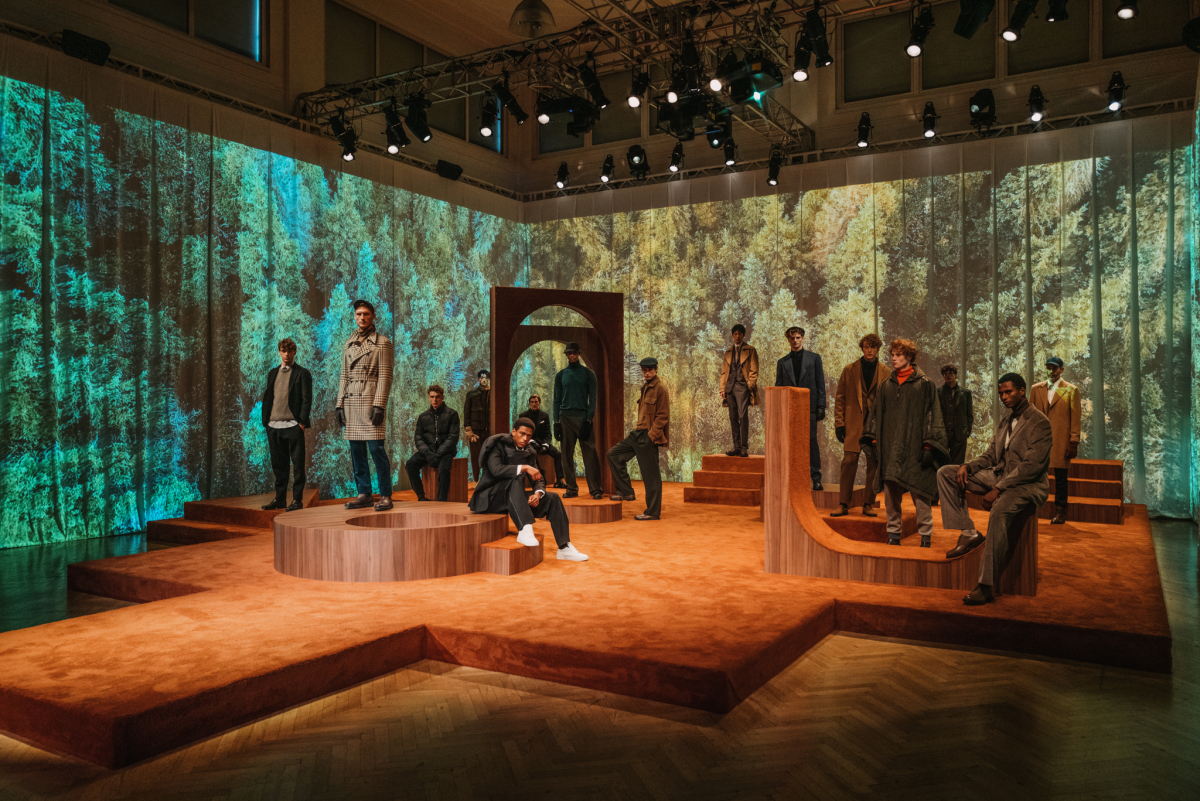
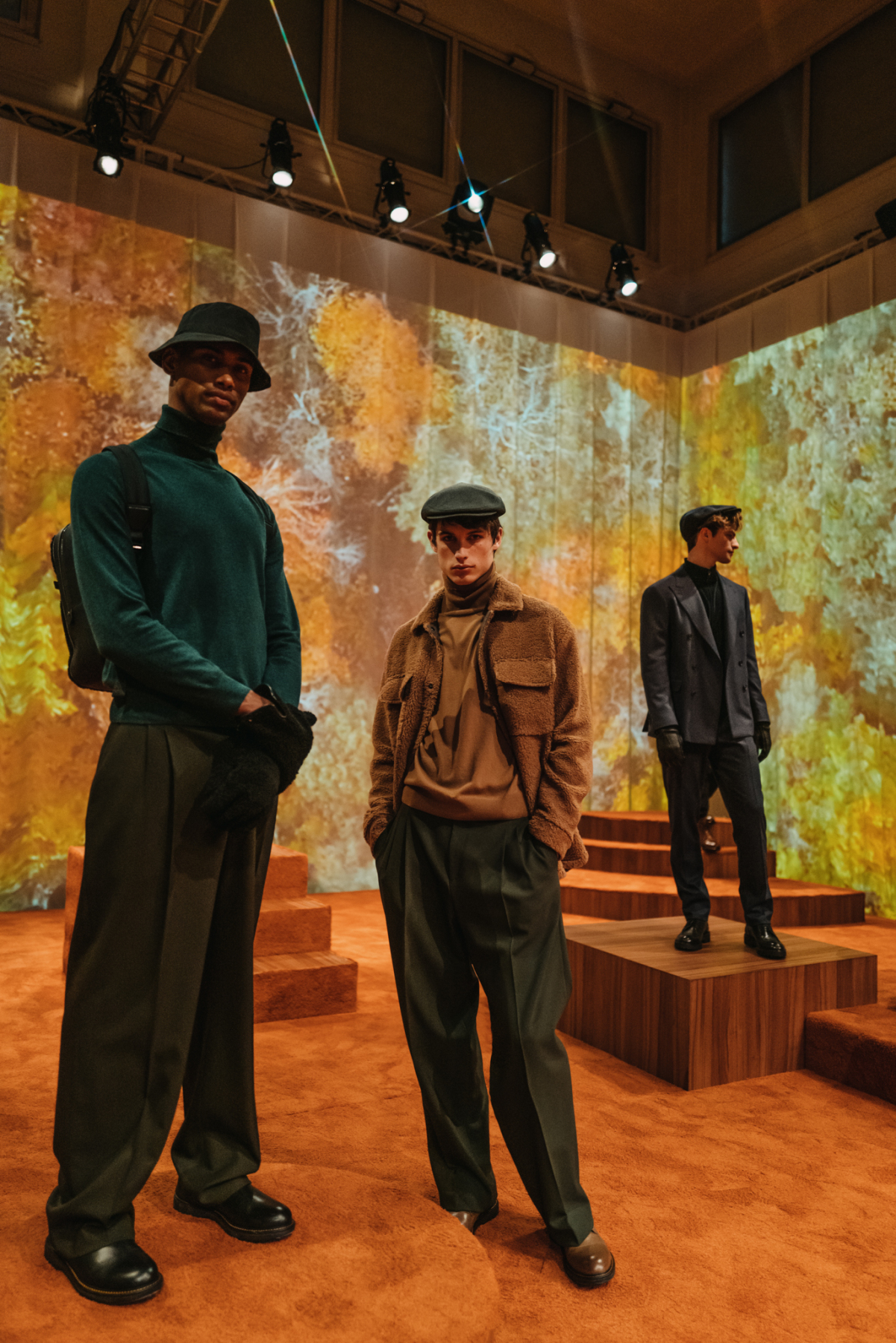
CANALI AW23 Series
Canali’s Commitment to Sustainability
Durability is one of the distinguishing features and advantages of CANALI clothing, gaining recognition from a large number of consumers.
Today, CANALI quantifies this durability through scientific methods, with tests such as pilling, tearing, washability, and color fastness, confirming that the brand’s products have higher durability than the industry average. In the 2023 autumn/winter collection, CANALI also made its first attempt to use recycled materials, a part of CANALI’s latest sustainable project, the CAre Project.
The CAre Project’s name consists of two parts, “CA” and “re”. The former derives from the first two letters of the CANALI brand name, while the latter represents several important values and commitments of the brand: REspect, REsponsibility, REliability, REcycle, REuse, REpair, REstore, and REward.
LuxePlace: How did CANALI achieve higher durability for its products compared to the industry average?
Stefano Canali: Product quality depends on two factors. The first thing was the fabric used. A high-quality fabric that is supposed to be beautiful pressures and is supposed to last. So it’s supposed to wear off slowly over time. The second feature is the construction. If you sew pieces of fabric, instead of gluing them or pressing them, you come up with a product that can be altered over time and can be fixed whenever you have a problem. By doing so, you guarantee that the product will last longer than many people might expect.
As a matter of fact, we assessed that our products were able to reach the highest limit of the range of durability set by the European Union within the PEF methodology, which means that the annual environmental footprint of a product is basically half the impact of an average product as far as durability is concerned.
LuxePlace: Please introduce the CAre Project. What specific actions does it include?
Stefano Canali: To create a comprehensive action plan, we must measure our environmental footprint.
We chose two different measurement methods to gain a comprehensive understanding of the overall environmental impact of our business. First, we evaluated our OEF, which stands for Organizational Environmental Footprint. This method is based on 16 indicators, including carbon footprint, land use, natural resource use, water consumption, etc., to calculate the impact of every aspect of the business, from raw materials, natural resources, manufacturing, and logistics, to headquarters and store activities. It is also essential to measure the impact of the products themselves, known as PEF. We measured the environmental impact of 59% of the products produced, which is a significant sample.
Through evaluation, we found that the impact of business management is minor in the overall impact. Two-thirds of the carbon footprint comes from the use of raw materials, and one-third is related to our manufacturing facilities and natural resource consumption. For the latter, we have already addressed it through measures such as installing photovoltaic panels or LED lights. This is the easiest part of the action plan.
The remaining two-thirds must be achieved by aiming for material circularity. We are striving to find fabrics that might privilege the use of recycled fibers or the use of organic fibers. In addition to that, we are putting a lot of pressure on our suppliers in order for them to come up with the PEF of the fabrics they sell to us to reduce the overall impact of the fabrics sold to our company.
LuxePlace: How does CANALI’s bespoke service contribute to sustainability?
Stefano Canali: The Me-by-CANALI bespoke service is an evolution of Canali’s made-to-measure service that we’ve been providing for many decades now. When you customize clothing for someone based on their needs, you are doing something more sustainable. Calculated with a 2/3 sales rate, every sold product leaves 67% of the stock. When you buy the Me-by-CANALI custom suit, there is no leftover stock, making it another way to reduce the environmental footprint. That is why we are promoting the Me-by-CANALI service so vigorously.
LuxePlace: What is the most important quality you have learned from your family’s ancestors?
Stefano Canali: I’d say that the most important value of the value set that we developed over the 90 years of history, and we acted while working for this company, is REspect.
Our environmental measures are largely based on respecting development. Out of respect for the environment, we decided to evaluate our environmental impact instead of taking shortcuts in greenwashing. Out of respect for customers, we disclose the actions we are taking, the results of evaluations, and how we describe our sustainable measures.
We feel that it is necessary to give back part of the profits obtained in the business. About ten years ago, we established the Canali Onlus Foundation, which supports charitable projects in Italy and globally. Among the projects the foundation is currently undertaking are supporting heart surgery in Eastern European countries and treating blood diseases in children.
During the pandemic in 2020, we paid 100% of salaries to all our employees globally. Last year, we provided additional support to our employees in Italy to help them cope with the high inflation caused by rising prices of natural resources such as gas and electricity. This is something we have been doing all along, not out of obligation but because we believe it is what we should do, and it aligns with our business principles.
| Image Credits: Provided by the Brand
| Editor: Zhu Ruoyu

